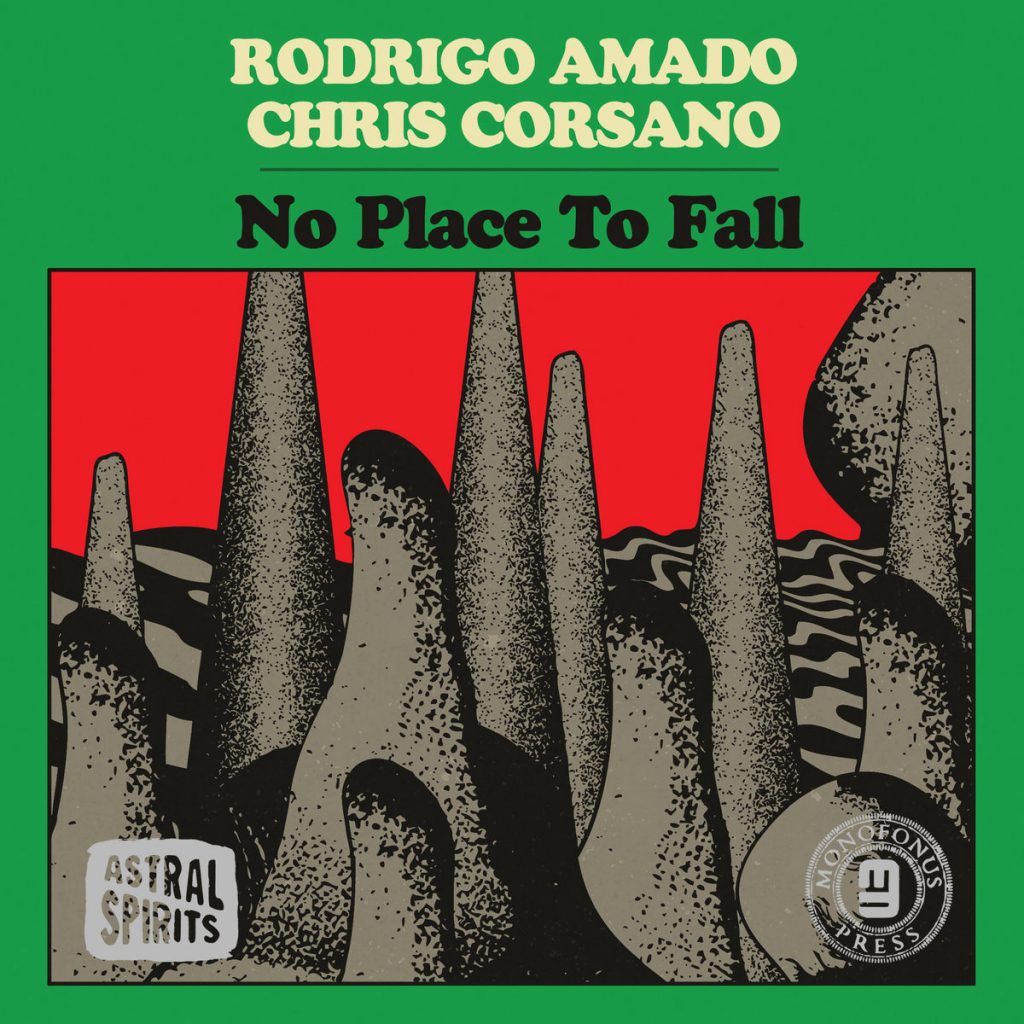
If humanity survives to reflect upon the current times, the middle of the 20th century will likely be seen as a musical/cultural nexus. Whatever you listen now to can be linked back to some gathering of prior ideas that took place in 1950s or 1960s. In jazz, that can often be narrowed down to particular albums that crystalized aesthetic notions. For example, consider John Coltrane and Rashied Ali’s duo recording, 1967’s Interstellar Space, which showed how jazz could be reduce to essential ingredients: melody, texture, energy and pace. Every subsequent saxophone-and-drum session gets measured against it, and it’s a yardstick that can make anyone feel a bit short.
Portuguese tenor saxophonist Rodrigo Amado no doubt thought about this going into No Place To Fall and prepared accordingly. The partner he chose, American drummer Chris Corsano, is not only a long-term collaborators in Amado’s other ensembles, but a contemporary master of improvised duets. Not much binds Bill Nace, Christine Abdelnour, Paul Flaherty or Bill Orcutt at the stylistic level, but they’ve all found the freedom to be their best selves in Corsano’s company. His high energy and unerring spontaneous judgment are easy to notice, but the extent to which you don’t notice how he supports and spotlights his partners is actually testament to how good he is at it.
With Amado, Corsano funnels pressurized force through reduced sonic means—sticks on toms, brushes on the snare and cymbals, a kick drum and not much else—to make Amado’s textural variations stand out. Amado’s a melodist at heart, so while it’s a gas to hear him blow coarse and gargantuan on the title track, it’s the tender dynamics of “We’ll Be Here In The Morning” that stay with you after the adrenaline wears off. You might be tempted to ask if it measures the full yard, but it might be better focus on how the ways this music fully occupies the present. Then was great, and you don’t want to forget about it, but we’re living right now, and so is this music.
—Bill Meyer






